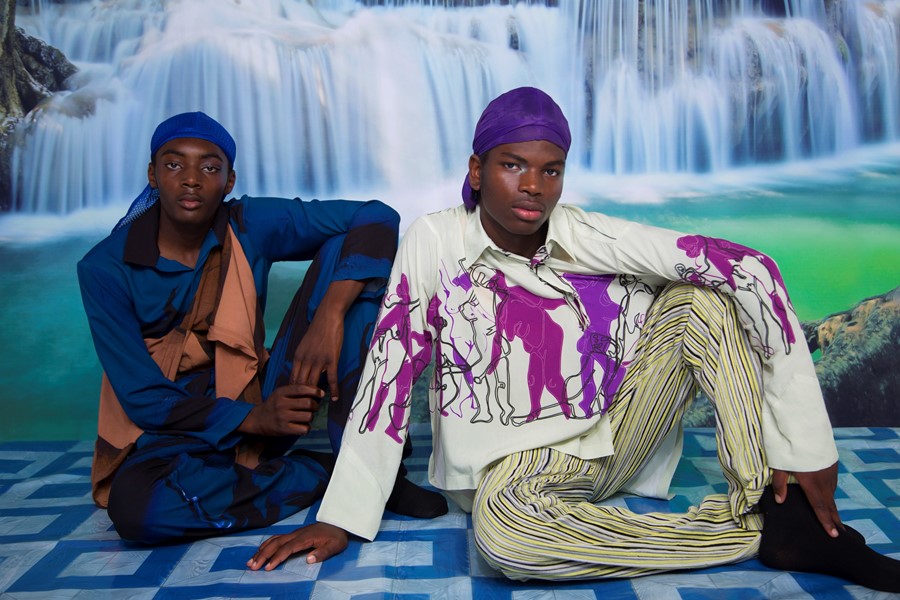As Lagos-based festival Homecoming launches digitally with Browns, five Nigerian designers talk to Bernard Dayo about what Homecoming means to them, Lagos’ growing fashion scene, and working in the age of Covid-19
In less than a decade, Nigeria has crystallised into a nexus of creative impulses that has drawn the international gaze to its most energetic city – Lagos. The fashion scene, particularly, is formed from political ideas of liberation and expression, and made visible by wildly insouciant youth subcultures curating these moments on social media. Whether brash streetwear, or ‘cottagecore’, or splicing garments into new codes of personal expression, the resulting scene speaks with untouchable defiance.
Fashion weeks have also come to cement the city’s place in global fashion conversations, and Nigerian fashion designers are making huge strides both inside and outside of the country. Kenneth Ize is set to collaborate with the Karl Lagerfeld brand for a capsule collection, while Mowalola Ogunlesi was appointed as design director of Kanye West’s Yeezy Gap. Still, there’s much the industry can attain and evolve into.
Nothing prepared anyone for the coronavirus pandemic and ensuing lockdowns back in March, which disrupted supply chains and negatively impacted revenue, not to mention the cancellation of catwalk shows and a pivot to digital showcases.
In these difficult times, Homecoming returns for its third outing, the cultural exchange festival that’s still much of a catalyst for Nigeria to interact with the world on a creative front. Usually taking place in Lagos, Homecoming – organised by Metallic Inc’s Grace Ladoja and Alex Sossah – is partnering with London-based retailer Browns to recreate the festival digitally, encompassing panel talks, a zine and various creative collaborations, as well as a special focus on supporting Nigerian brands by providing them with retail distribution.
This year’s lineup of designers includes Orange Culture, Motherlan, Post-Imperial, Vivendii, Tokyo James and more, all showcasing exclusive collections on Browns’ website and in Browns East, the east London outpost of the store. In small ways, this is a step towards envisioning the fashion landscape in a post-pandemic world, and democratising how collections are viewed.
Here, we speak to five of them, asking about their involvement in Homecoming this year, the journey of their respective brands through the coronavirus pandemic, and how much they are influenced by the beauty and chaotic undercurrents of Lagos.
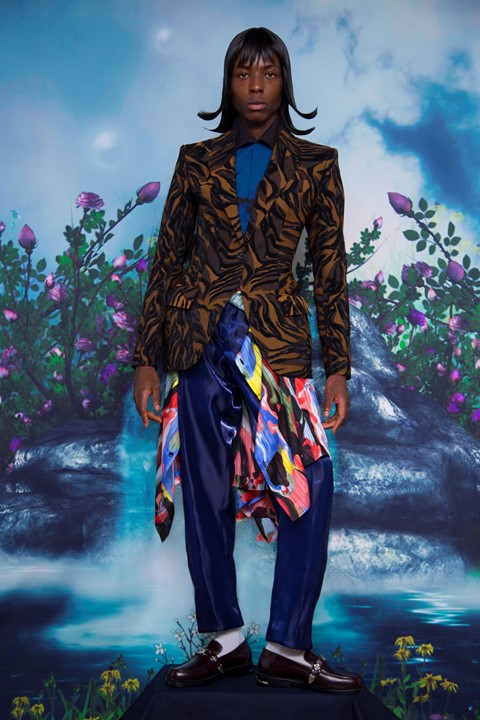
Orange Culture
“I grew up in Lagos, experienced Lagos in every phase of my life and in so many dimensions through very colourful eyes. Our identity as a brand is drawn from my experiences of liberated expression in Lagos – the good, the bad and the ugly; it is inspired by the beauty of our culture, in our silhouettes, in our prints and the colour stories our daily lives tell. I grew up very immersed in colourful traditional-wear but being told in our everyday lives as men that colour wasn’t for us because it made us seem feminine. For me a lot of our aesthetics are around celebrating the beauty and questioning the caged traditions of the beautiful Lagos I’ve grown to love.
“We are super excited [to be involved with Homecoming], especially with the mix of brands involved. We are all so different and show various expressions of the non-cliché versions of Nigerian and African fashion that have been imposed on us. It also opens us up to new opportunities, new retailers and to a new consumer base.
“Even when we were told ten years ago that no man would wear print-on-print, organza and so much colour, we kept pushing our narrative. Fast forward to now – numerous brands have taken up these expressions and are doing so freely. I think we opened up a lot of conversations around gender and made a way for many brands to do same.
“[The collection] explores the fiery battle with the self as we probe the relationship between man and his destructive shadowed self ... the necessary and progressive need for men and women to look within themselves and fight the demons that constantly hunt them. We worked with artist Eloghosa Osunde to create a lot of our prints and, as per usual, genderless fabrication utilising organzas, chiffons, hand-dyed cottons, Adire and Aso Oke. We also worked with women in Rwanda for some amazing hand-beaded pieces – vests of armoury as we go on our battle.”
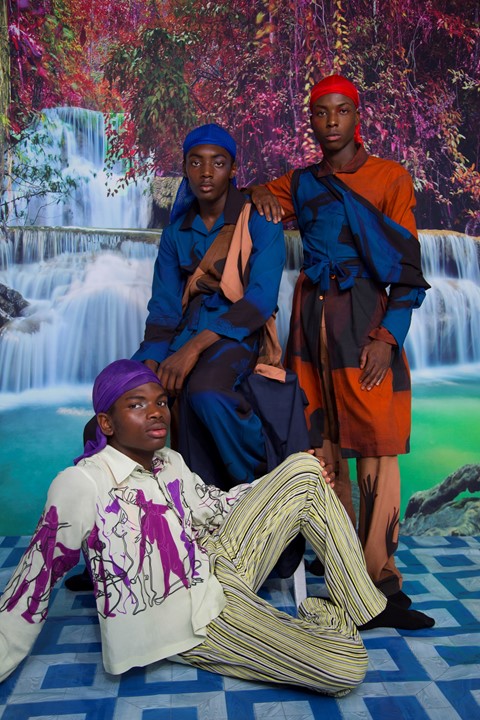
Tokyo James
“Since the conception of the brand, there has always been a link between Europe and Africa that has constantly been intertwined for me, so I haven’t felt any pressure to lean towards one or the other; we’ve always tried to find a balance between both, whether that’s been through using certain textures or materials. The Tokyo James brand is a place where Europe and Africa come to play, we are at the intersection of both worlds.
“Covid-19 has caused seismic shifts in economies across the world. However, fashion in Africa is vastly different from the West. As a brand operating between London and Lagos we have had to make quick adjustments to accommodate the changes in both markets. As a designer currently based in Nigeria the digital space has always been key to our brand as it has given us the gateway to reach people internationally, and I’m sure it’s the same for most brands, so I don’t believe it’s a new frontier for Nigerian fashion per se but it has pushed us to focus more on building a better digital profile.
“As a brand we have learnt to adapt very quickly to the current economic disruption, refocusing our efforts on reinforcing our brand identity and collaborating with other brands from other industries from music to the tech world. We produce all our samples in-house or locally and buy most of our fabrics locally too and reuse fabrics that we have in our warehouse, so this has been OK for us as we haven’t had to rely on international resources. However, I know this hasn’t been the case for some other independent smaller brands. I believe the pandemic has, in a weird way, brought people together and given people the chance to figure out a new way of working in fashion – whether deciding to go season-less, producing samples locally or creating scrubs and masks for people that need them most. I think it’s made us really appreciate the value of community.”
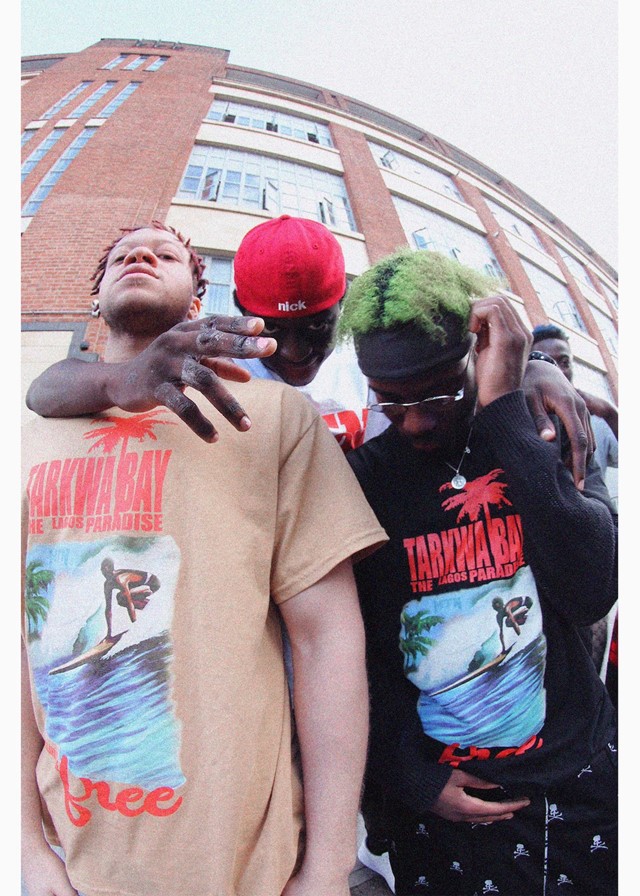
Motherlan
“Homecoming creates more visibility for everyone. We are participating again to support the cause as many small designers and especially African brands will gain more and more visibility in Europe and will have the chance to grow.
“All we normally do is bring current issues to light, and we tried to do it again in this collection. Skating is just who we are, the message is what we spread ... we do don’t think things over too much, we just do whatever we want.”
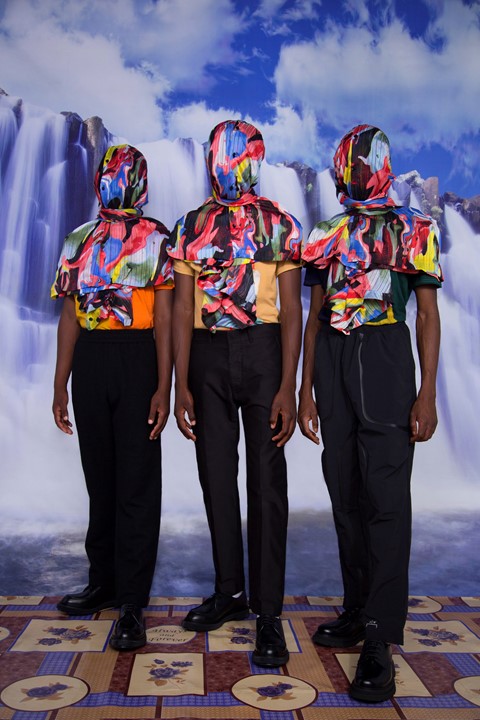
Post-Imperial
“Post-Imperial is rooted in community as well as collaboration, and Homecoming harbours a platform that merges both and encompasses that space for African designers. As a global African brand, it has always been important to connect to our community digitally, because it expanded our reach. We have always been amazed that a brand like ours, with roots on the continent of Africa, can inspire and resonate with someone in Japan, and in the UK, and Australia.
“The digital format allows for our village to simultaneously be local and global. Partnering with Browns Homecoming has allowed Post-Imperial to share our stories, highlight our in-house collaborators – such as our local dyers in Nigeria – as well as the unique points of view of the other African creatives involved in the project.
“Post-Imperial is a brand rooted in mythology connected to the African diaspora, humanising materials as it relates to ethical responsibility and the creative collaboration between artisans. The craft of Adire embodies all that Post-Imperial represents; the process is steeped in mythology, which allows anyone to participate in its story while reminding us to be mindful of what fabrics and materials we can work with. The entire process is additionally an embodied experience that encourages collaboration between the design process, the waxing process and the dyeing process.
“As I mentioned, Homecoming x Browns offers a platform that encompasses a unique space for African designers. These platforms are essential for the Nigerian fashion industry as it allows young designers to grow their business, while exchanging their ideas within the global village. It is an exchange that is beneficial for all involved.”
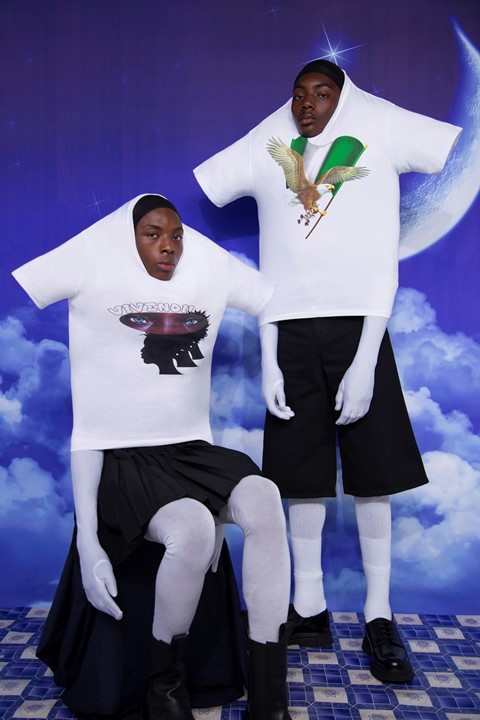
Vivendii
“[Since the beginning] the brand has evolved into Vivendii the clothing label, Vivendii Sound with the music, and Vivendii as an idea. The idea of freedom and limitless possibilities – we want to make furniture, films, paintings and as we grow let our inner child play.
“We are Nigerian so any sensibilities that we include from ourselves makes it Nigerian; we include ideas and concepts that are familiar to us growing up in Nigeria. We also point out things that we don’t agree within our tradition. Vivendii means ‘way of life’ and that’s exactly what we show.
“[I don’t think] streetwear is underappreciated, because people wear it every day on the street ... we should not get too caught up about differentiating what kind of streetwear is which. We should just create and let people do as they please so we are not disappointed by our expectations. Just enjoy it!”
Explore the digital Homecoming festival on Browns here, which is presented alongside a Homecoming x Browns collection, featuring the featured designers and more.
A panel talk – Homecoming and Browns Present: Can Africa Generate The Re-Birth Of Streetwear? featuring Virgil Abloh, Ciesay, Homecoming organisers Grace Ladoja MBE and Alex Sossah, and more – will take place on August 28 2020, book your spot here.
